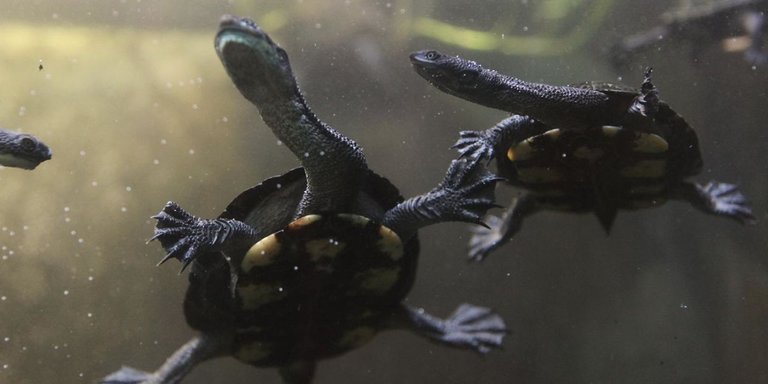
The Eastern long-necked turtle (Chelodina longicollis) is a semi-aquatic, southeastern Australian species. As the name suggests, the Eastern long-necked turtle claim to fame is it's disproportionately long neck, which is on average about half the length of its shell, and has earned it the alternate name of the Australian snake-necked turtle. They grow to about 11 inches, 28 cm.
The neck isn't the only anatomical feature giving this turtle derives a name from, however. This animal is also known as the "stinker." The name is referring to scent glands in the groin and underarms region that secrete an odious liquid when the turtle is feeling threatened.
The turtles are carnivorous and mostly consume fish, crustaceans, plankton, insects, frogs, and tadpoles. The females lay 4 - 20 eggs during breeding season and the young hatch around 3 - 4 months later. These turtles are polygynandrous, males and females will mate with multiple partners during a season, and females may lay up to two clutches of eggs. Predators for adults include lizards and Water-rats, while their young are predated by fish and birds. If all goes well, their lifespan is a little over 30 years,
Image: Smithsonian’s National ZooRead more: http://rsci.nl/kvr
Read more: http://rsci.nl/yzd
Read more: http://rsci.nl/y8b
Love them!